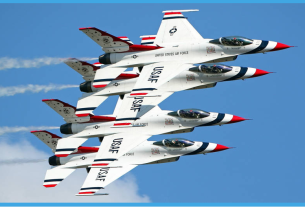In a significant development, nine children, who have been caught in the crossfire of the ongoing conflict between Russia and Ukraine, will be returned to their respective families this week. This latest exchange of minors is part of a broader humanitarian effort facilitated by Qatar, which has played a pivotal role in mediating these repatriations.
Context of the Humanitarian Exchange
The children, who are of Russian and Ukrainian nationality, had been separated from their families amid the ongoing conflict. Their return follows a series of exchanges, part of wider efforts to facilitate the safe and voluntary return of minors who have been displaced or removed due to the war. Qatar has emerged as a key diplomatic player in these exchanges, helping to broker a process that aims to reunite children with their parents or guardians, ensuring their safety and well-being amidst the broader humanitarian crisis.
This exchange comes at a time when both Russia and Ukraine are under intense international scrutiny regarding the treatment of civilians and prisoners of war, with the protection of children emerging as a critical concern.
Qatar’s Role as a Mediator
Qatar’s involvement in this humanitarian initiative underscores its growing diplomatic influence in global mediation efforts. Over the past year, Qatar has facilitated several exchanges between Russian and Ukrainian nationals, focusing on civilian repatriations, the return of prisoners, and, notably, the safe transfer of children. By providing a neutral ground for talks and negotiations, Qatar has positioned itself as an important mediator in the complex dynamics of the Russia-Ukraine conflict.
In previous exchanges, both nations have agreed to release prisoners and return civilians, but the repatriation of minors has become a particularly sensitive and urgent issue. These exchanges are often conducted under strict protocols to ensure the children’s safety and that the process adheres to international law, particularly the Convention on the Rights of the Child.
Humanitarian Implications
The return of these nine children marks a significant step in alleviating the human toll of the war, particularly for those whose lives have been disrupted by the conflict. Many of the children have spent extended periods away from their families, some in makeshift camps or under the care of local authorities. Their return will not only provide emotional relief to the families involved but also serve as a poignant reminder of the ongoing need for humanitarian action as the conflict drags on.
In addition to the emotional and psychological implications, the exchange highlights the continued need for dialogue and diplomacy in the resolution of the war. The repatriation of children serves as a reminder of the human costs of the conflict and the critical importance of international cooperation in humanitarian efforts.
Challenges and Future Prospects
Despite the positive nature of this exchange, challenges remain in ensuring the safe and voluntary return of all displaced minors. The ongoing conflict, political complexities, and differing narratives between Russia and Ukraine make such exchanges difficult to coordinate and execute. However, Qatar’s continued involvement may offer a glimmer of hope for future humanitarian initiatives, providing a model for diplomacy and cooperation in an otherwise tense and volatile environment.
As this exchange takes place, the eyes of the international community will remain on the broader humanitarian crisis in Ukraine and Russia, with an increasing focus on protecting vulnerable civilians, particularly children, from the devastating effects of war. The return of these nine children may only be a small part of the larger effort to address the humanitarian consequences of the conflict, but it signals a crucial step forward in restoring normalcy and dignity to those most affected.



